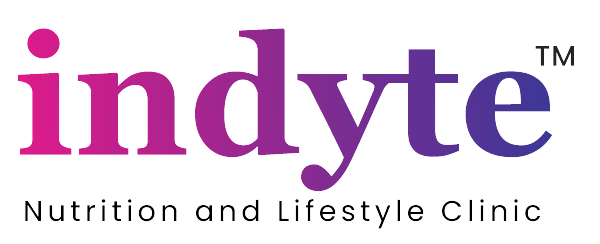- April 18, 2024
- PRIYANKA MAHESHWARI
- Comment: 0
- Cholesterol Diet
Have you recently received a wake-up call from your doctor about your cholesterol levels? Maybe you’re looking for ways to avoid medication and take charge of your heart health naturally. If so, you’re not alone. Millions of people are on the quest to lower their cholesterol and reduce their risk of heart disease. The good news is that there are many effective ways to “win the cholesterol battle” through a natural lifestyle approach.
Understanding Cholesterol and Its Impact
Let’s take a quick step back and understand what cholesterol is and why it matters. Cholesterol is a waxy substance produced by your liver and found in some of the foods you eat. There are two main types:
- LDL (“bad”) cholesterol: This is the one you want to keep in check. When LDL levels get too high, it can build up in your arteries, like plaque, narrowing the pathways and increasing the risk of heart disease and stroke.
- HDL (“good”) cholesterol: Think of HDL as your body’s clean-up crew. It helps remove LDL cholesterol from your arteries and transports it back to your liver for disposal.
How to Reduce Cholesterol Naturally
The power to control cholesterol with a diet chart and lifestyle changes lies within your reach. Here are some useful strategies to consider:
Diet is Key:
What you eat is the most dominant factor in your cholesterol levels. Consider these dietary shifts:
- Fiber Up: Soluble fiber found in fruits (apples, berries), vegetables (Brussels sprouts, broccoli), beans (lentils, chickpeas), and whole grains (oatmeal, quinoa) can trap cholesterol and help your body eliminate it. Aim for 25-35 grams of fiber per day.
- Healthy Fats vs. Unhealthy Fats: Swap out saturated fats (think fatty cuts of meat, fried foods, processed snacks) with unsaturated fats like those found in avocados, nuts (almonds, walnuts), and olive oil. Unsaturated fats can actually help lower your LDL cholesterol.
- Plant Power: Embrace the heart-healthy benefits of a plant-based diet. Fruits, vegetables, legumes, and whole grains are packed with nutrients that can positively impact your cholesterol levels.
- Limit Cholesterol Intake: While dietary cholesterol isn’t the biggest culprit, it’s still a good idea to moderate your intake of foods high in it, like red meat, egg yolks, and processed foods.
Move Your Body:
Regular physical activity is a game-changer for cholesterol management. Aim for at least 150 minutes of moderate-intensity exercise per week (think brisk walking, biking) or 75 minutes of vigorous-intensity exercise (running, swimming). Even small increases in activity can make a difference.
Weight Management:
Maintaining a healthy weight can significantly improve your cholesterol profile. If you’re carrying extra pounds, losing even a modest amount of weight can have a positive impact on your LDL and HDL levels.
Some research suggests that certain plants and herbs like garlic, turmeric, and psyllium husk might have potential benefits in lowering cholesterol. However, it’s crucial to speak with your doctor before starting any supplements, as they can interact with medications.
Lifestyle Tweaks for a Heart-Healthy You
Beyond diet and exercise, these lifestyle choices can contribute to keeping your cholesterol in check:
- Manage Stress: Chronic stress can contribute to high cholesterol. Explore stress-management techniques like yoga, meditation, or deep breathing exercises to help you relax and improve your overall well-being.
- Don’t Forget Sleep: Aim for 7-8 hours of quality sleep each night. Adequate sleep is essential for overall health, including cholesterol management.
Say No to Smoking: Smoking significantly increases your risk of heart disease and negatively impacts your cholesterol levels. Quitting smoking is one of the best things you can do for your heart health.
Beyond Diet and Exercise: Working with Your Doctor
While a natural approach can be very effective, it’s important to maintain open communication with your doctor.
- Regular Checkups are Key: Schedule regular checkups to monitor your cholesterol levels and discuss any concerns you may have.
- Medication Might Still Be Necessary: In some cases, medication may be necessary alongside lifestyle changes to effectively manage your cholesterol.
- Open Communication is Essential: Be upfront with your doctor about your goals and concerns. They can guide you on the best course of action for your individual situation.
Time to take action
Winning the battle against high cholesterol is possible! By incorporating these natural strategies like focusing on a heart-healthy diet, exercising regularly, and managing stress – you can take control of your health and reduce your risk of heart disease. Remember, consult with your doctor to create a personalized plan and monitor your progress. Don’t wait any longer, take charge of your heart health today!
Indyte Experts’ Insight: Sample Meal Plan for a Cholesterol-Friendly Diet
Here’s a glimpse of a sample meal plan to inspire you:
- Breakfast: Oatmeal with berries, walnuts, and a sprinkle of cinnamon (packed with fiber and healthy fats)
- Lunch: Grilled salmon salad with mixed greens, quinoa, avocado, and a light vinaigrette dressing (lean protein, healthy fats, and fiber)
- Snack: Apple slices with almond butter (fiber and healthy fats)
- Dinner: Turkey chili with kidney beans, corn, and chopped vegetables (lean protein, fiber, and plant-powered goodness)
Remember, this is just a sample. You can create countless delicious and heart-healthy meals by incorporating the tips mentioned above.
Taking the Next Step:
If you’re looking for more personalized guidance on how to reduce cholesterol naturally, consider consulting our experienced nutritionist, Priyanka. She can help you create a customized diet plan tailored to your specific needs and preferences. With her expertise and your commitment to a healthy lifestyle, you can achieve your cholesterol-lowering goals and live a heart-healthy life.
Take this blog post as your first step in reducing cholesterol naturally. Remember, consistency is key! By incorporating these strategies into your daily routine, you can significantly impact your cholesterol levels and overall health. Let’s connect and build healthy habits!

